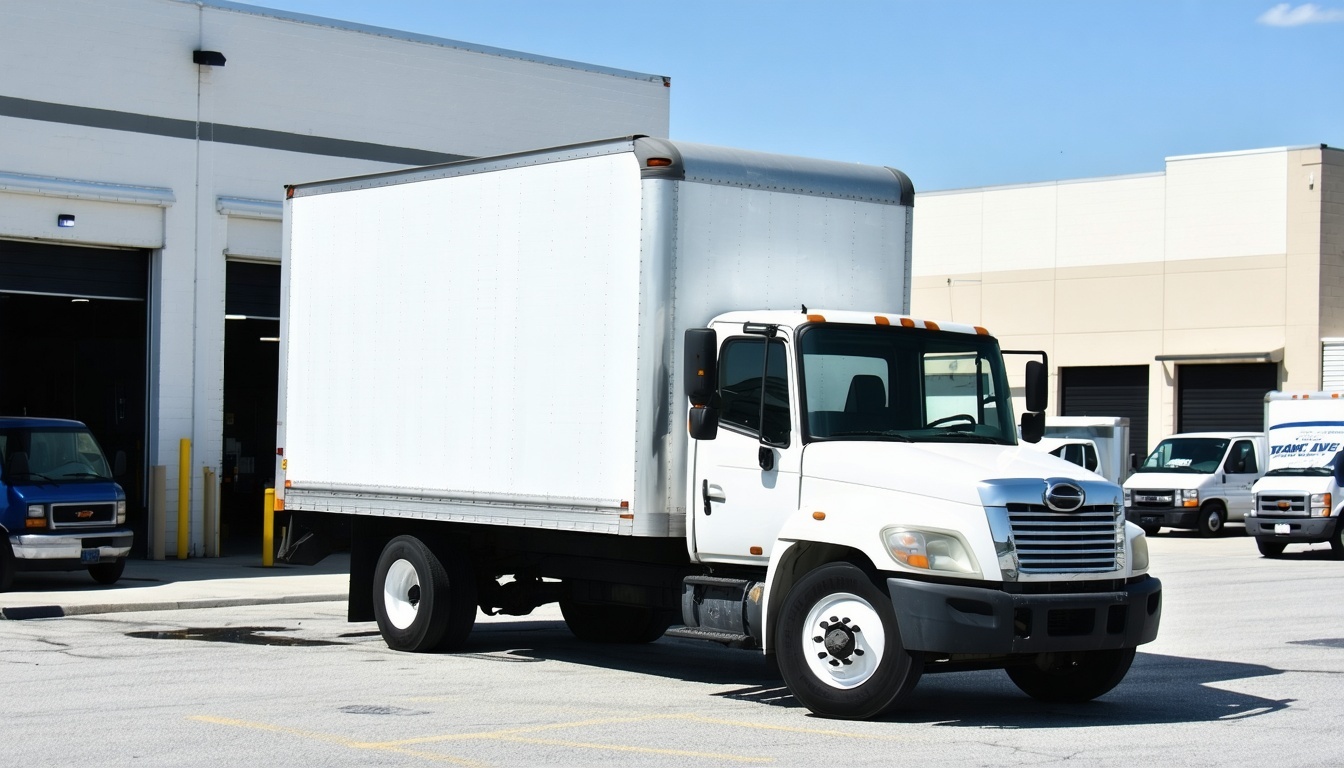Leasing or Buying Box Trucks: Pros and Cons for Small Businesses
Whether you're running a moving company, delivery service, furniture business, or local logistics operation, a reliable box truck is often essential. But when it's time to acquire one, small business owners are faced with a common question: Should I lease or buy my box truck?
This guide breaks down the pros and cons of leasing vs. buying box trucks to help you decide which option is best for your budget, growth plan, and operational needs.
Should You Lease or Buy a Box Truck?
Lease a box truck for lower upfront costs and flexibility.
Buy a box truck for long-term value and full ownership.
The best choice depends on your business goals and usage.
What Is a Box Truck?
A box truck (also called a cube truck or straight truck) has a cargo area separate from the cab. Commonly used for deliveries, moving, and logistics, box trucks range in size from 10 feet to 26 feet and can carry loads up to 33,000 lbs (Class 7).
Pros and Cons of Leasing a Box Truck
✅ Pros of Leasing:
-
Lower upfront costs: Little to no down payment
-
Predictable monthly payments: Easier cash flow management
-
Easier to upgrade: Return or upgrade vehicle at lease-end
-
Fewer maintenance worries: Many leases include servicing
-
Tax advantages: Lease payments may be fully deductible
❌ Cons of Leasing:
-
No ownership at the end (unless lease-to-own)
-
Mileage limits and wear-and-tear penalties may apply
-
Long-term cost may be higher than buying
-
Customization restrictions on leased vehicles
Related: How Equipment Leasing Can Boost Your Company’s Cash Flow
Pros and Cons of Buying a Box Truck
✅ Pros of Buying:
-
Full ownership: Build equity in your vehicle
-
No mileage limits or usage restrictions
-
Freedom to customize the vehicle
-
Better long-term ROI for high-mileage usage
-
Asset on your balance sheet for lending power
❌ Cons of Buying:
-
Large upfront costs (down payment, taxes, fees)
-
Responsible for all maintenance and repairs
-
Depreciation reduces resale value over time
-
Harder to upgrade quickly as your business grows
Cost Comparison: Leasing vs. Buying a Box Truck
| Factor | Leasing | Buying |
|---|---|---|
| Down Payment | $0–$5,000 | 10%–20% of vehicle cost |
| Monthly Payment | $450–$1,200/month (avg) | $750–$1,400/month (loan payments) |
| Ownership | No | Yes |
| Mileage Limit | Yes (typically 10K–30K/yr) | No |
| Maintenance | Often included | Your responsibility |
| Upgrade Flexibility | High (return or upgrade anytime) | Low (must sell or trade-in) |
When Leasing a Box Truck Makes Sense
Leasing is ideal if:
-
You're a startup or scaling and want to preserve cash
-
You don't plan to keep the truck long-term
-
You want to avoid maintenance hassles
-
You need seasonal or short-term use
-
You want access to newer models regularly
When Buying a Box Truck Makes Sense
Buying is better if:
-
You’ll use the truck long-term (5+ years)
-
Your annual mileage is high
-
You want to customize the truck
-
You need it as a business asset for loans
-
You want to reduce long-term costs
Where to Lease or Buy Box Trucks
-
Dealers (Ford, Freightliner, Isuzu, GMC, Hino)
-
Commercial vehicle leasing companies (Penske, Enterprise, Ryder)
-
Financing companies like Balboa Capital, Crest Capital
-
Used box truck marketplaces (Commercial Truck Trader, TruckPaper)
-
Online lenders like Lendio or National Funding
Lease vs. Buy a Box Truck
-
Lease for flexibility, low upfront costs, and new models
-
Buy for long-term ownership, high usage, and customization
-
Choose based on budget, usage, and growth goals
Final Thoughts: Pick the Right Path for Your Fleet
There’s no one-size-fits-all answer. If your business needs flexibility, predictable payments, and minimal maintenance risk, leasing a box truck may be your best bet. If you’re looking to build long-term value and have the cash flow to invest, buying could offer better returns.
Take Action: Find the Best Leasing or Financing Option Today
Ready to expand your delivery or logistics operation?
Compare box truck leasing and buying plans from top lenders and dealers today. Get the equipment you need—on terms that match your business goals.











